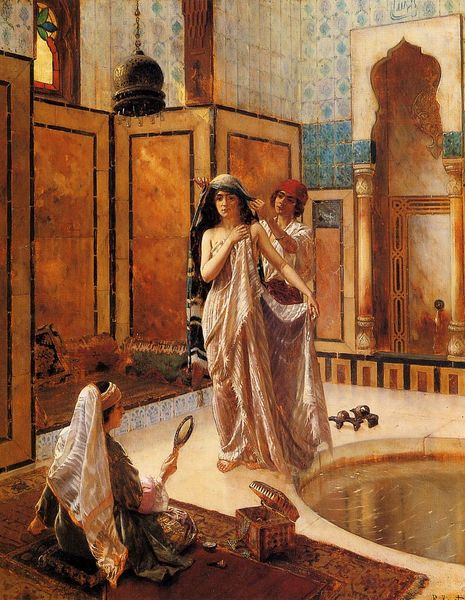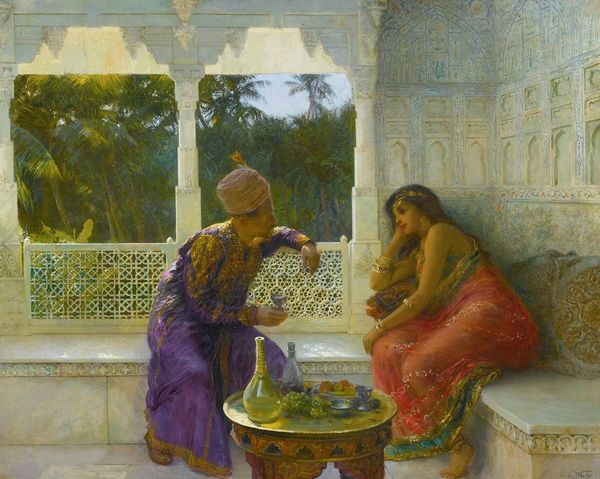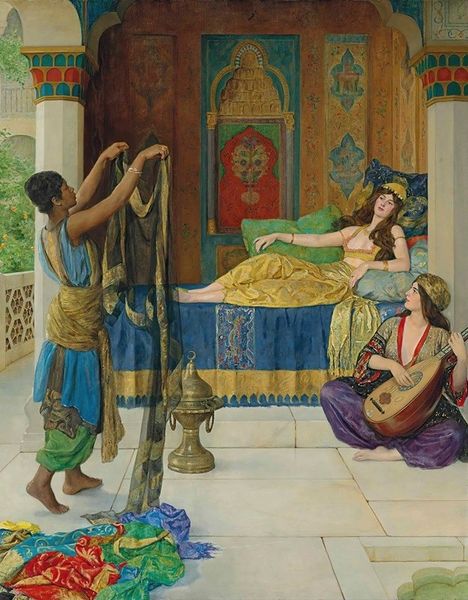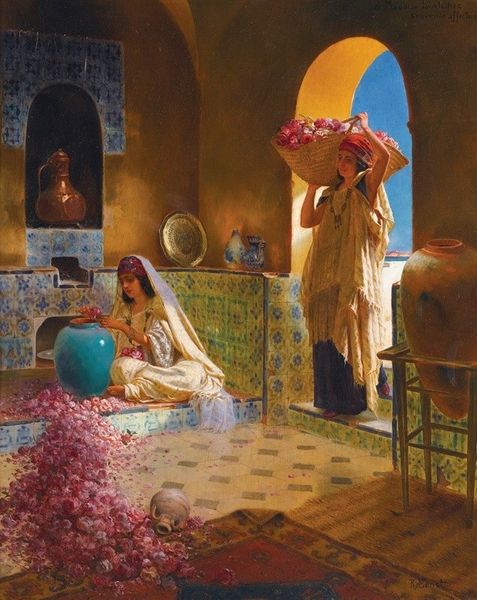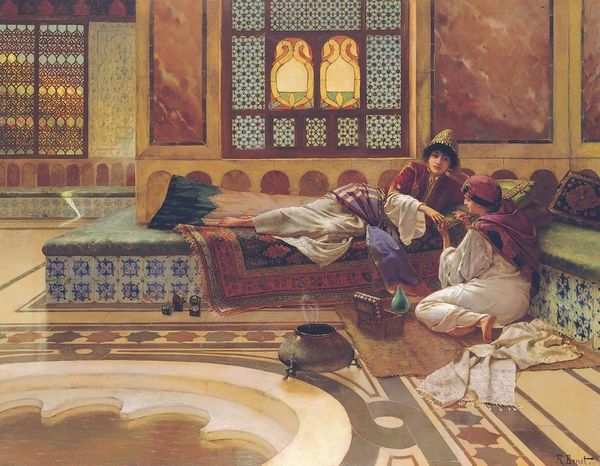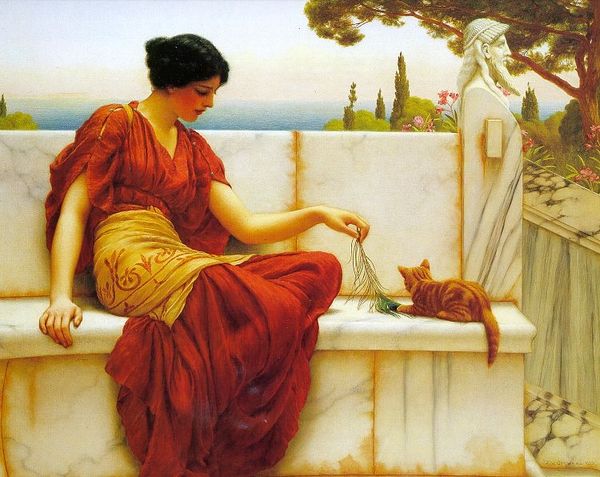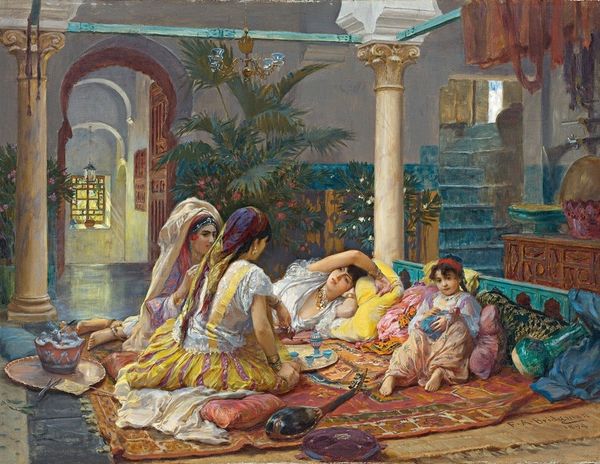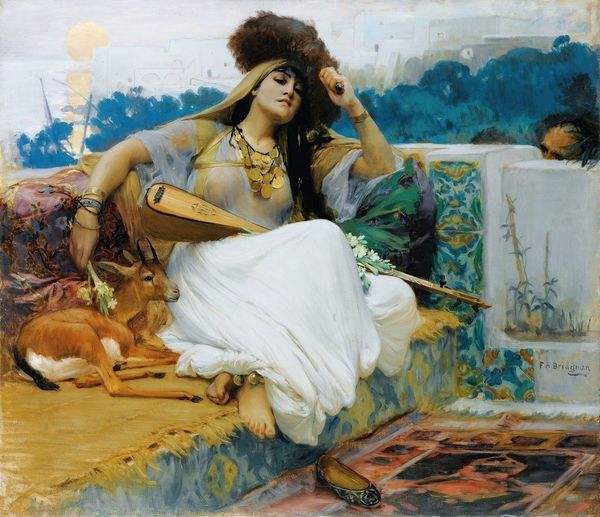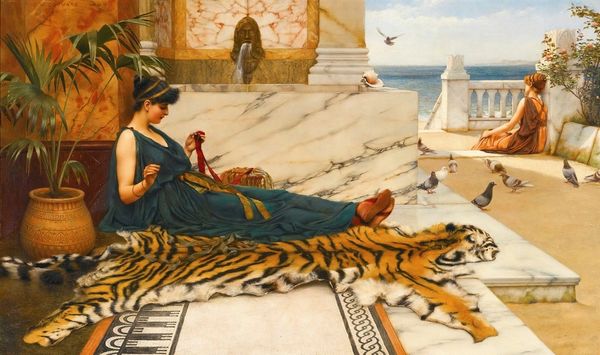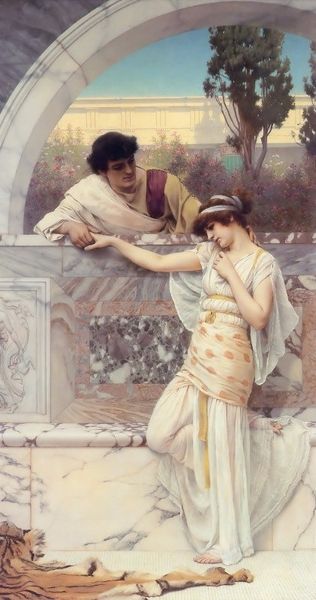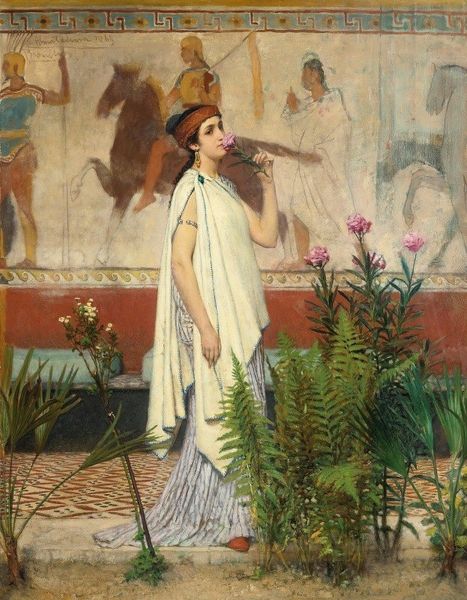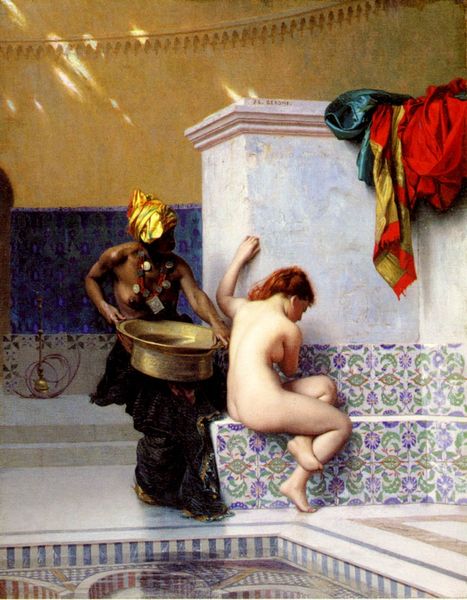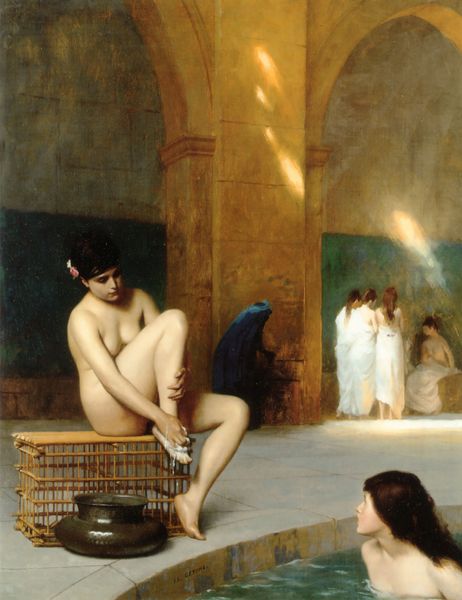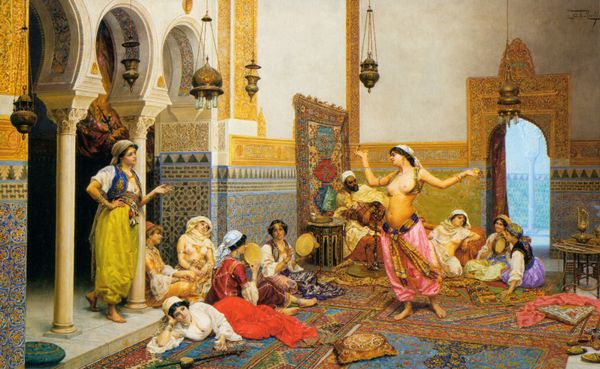
oil-paint
#
portrait
#
gouache
#
oil-paint
#
oil painting
#
intimism
#
coloured pencil
#
underpainting
#
orientalism
#
watercolour illustration
#
genre-painting
#
watercolor
Copyright: Public Domain: Artvee
Rudolf Ernst painted ‘After the Bath’ with oil on canvas, and while the date is unknown, its themes resonate with the orientalist movement of his time. The picture presents an imagined scene of women in a Turkish bath, or hammam. Ernst was Austrian, and his exotic vision reflects a broader European fascination with the ‘Orient’ – a region considered both alluring and mysterious. The architecture, the clothing, and the intimate glimpse into women's lives all speak to this constructed fantasy. But what does this fantasy tell us about European society itself? Orientalist paintings provided an escape from the rapidly industrializing West, but also served to reinforce ideas of European superiority. The ‘Orient’ was framed as exotic and sensual, but also as static, irrational, and in need of Western intervention. We can use sources from the time, such as travel writing, photographs, and colonial documents, to understand how this image participated in a broader set of power dynamics. The meaning of art is always rooted in its social and institutional context.
Comments
No comments
Be the first to comment and join the conversation on the ultimate creative platform.
